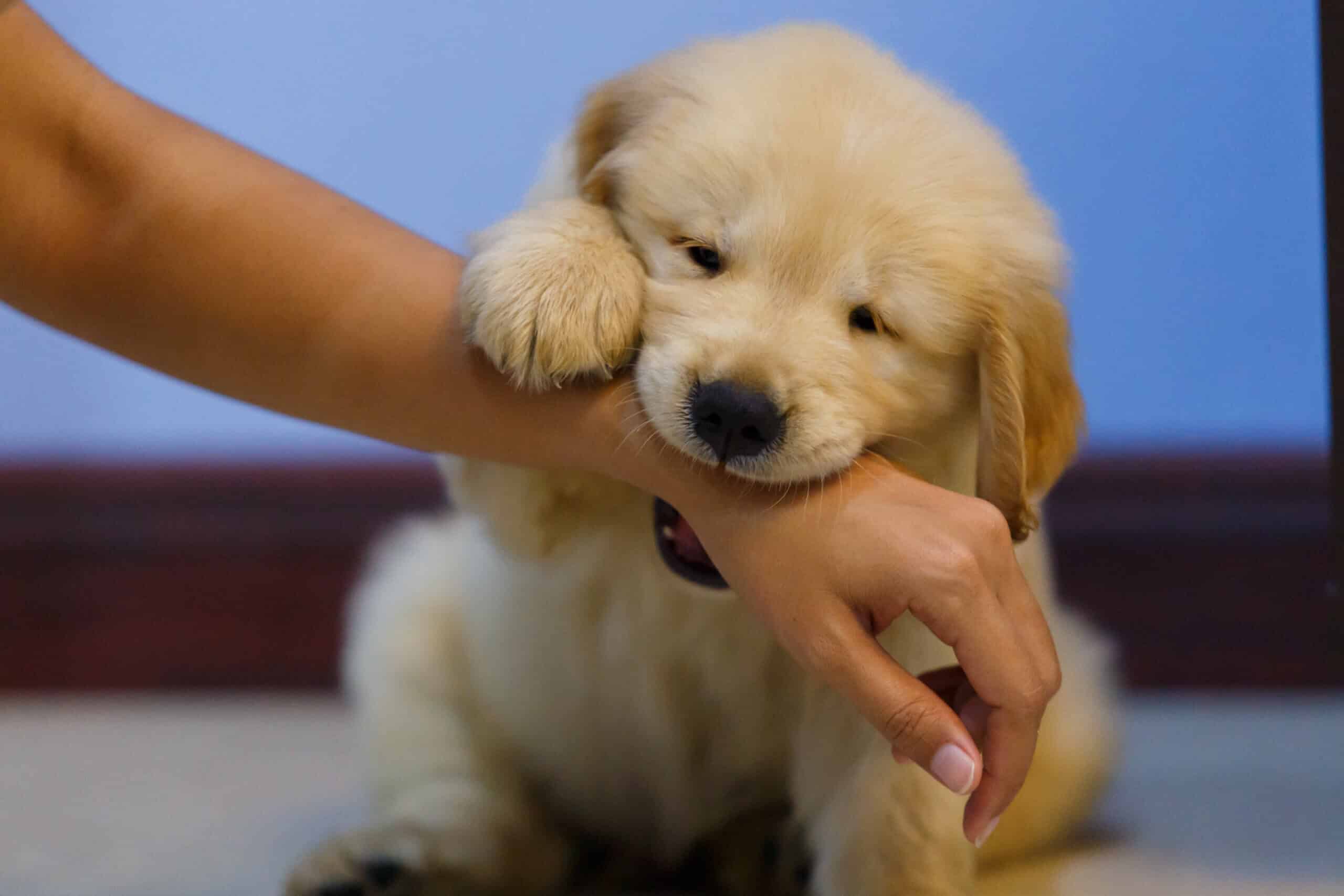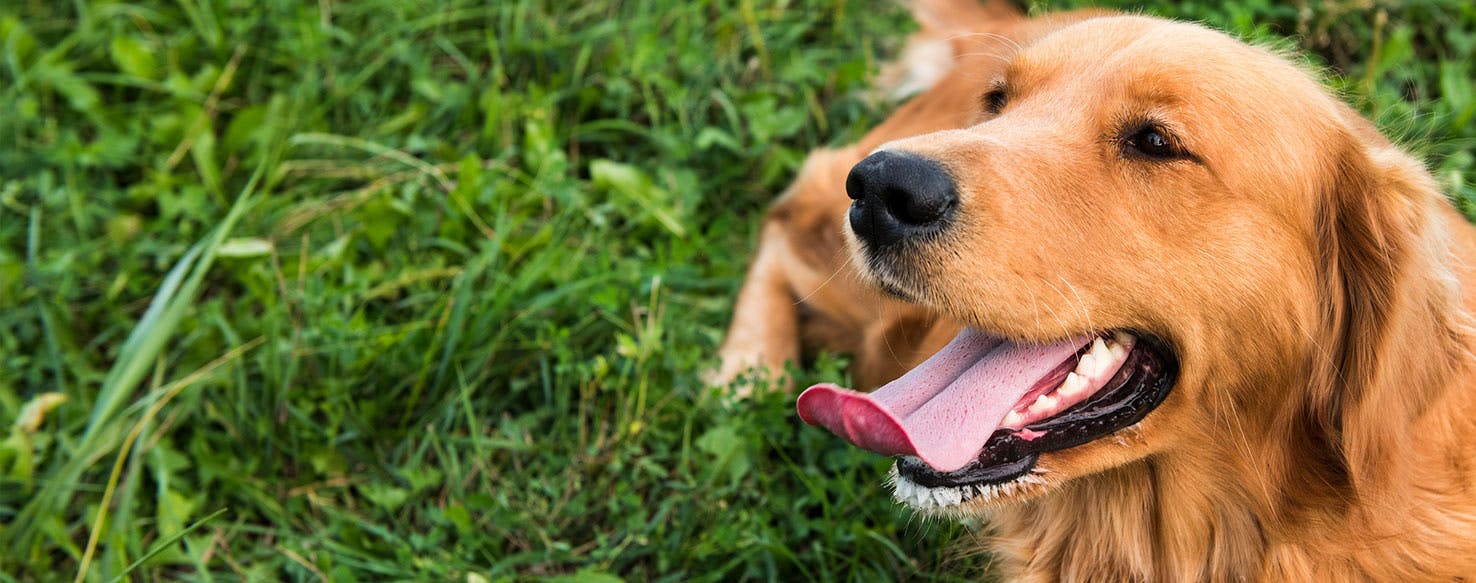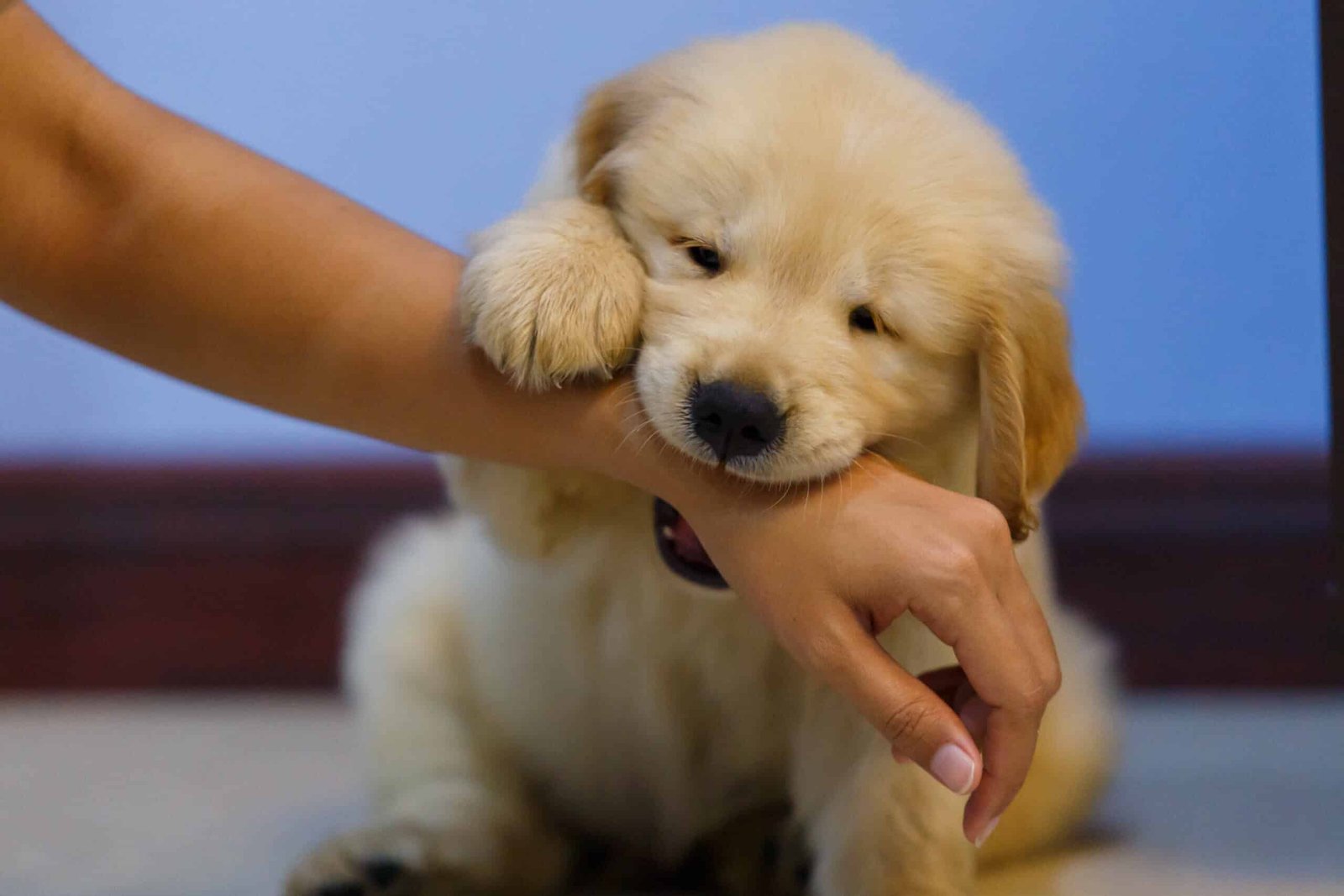When it comes to golden retrievers, our furry friends are known for their friendly and gentle temperament. But have you ever wondered, “Do golden retrievers bite?” Well, let’s dive into this topic and find out together!
First, it’s important to understand that every dog, regardless of breed, has the potential to bite. However, golden retrievers are generally known for being incredibly gentle and well-mannered companions. They are often used as therapy dogs and are famous for their patience and tolerance, especially around children.
Golden retrievers are renowned for their friendly nature, but like any animal, they may bite in certain circumstances. It’s crucial to remember that biting is usually a form of communication or defense for dogs. So, let’s explore when a golden retriever might resort to such behavior.
Remember, dogs communicate through body language and vocalizations. If a golden retriever is scared, threatened, or in pain, they may bite as a defensive instinct. Additionally, dogs can bite when they feel their personal space is being invaded or if they are protecting their food or possessions.
In conclusion, while golden retrievers are generally well-mannered and gentle creatures, understanding their nature and knowing the signs of potential aggression is crucial. So, let’s unravel the world of golden retrievers and gain a deeper understanding of these amazing companions!
Golden Retrievers are generally friendly and gentle dogs. While any dog has the potential to bite, Golden Retrievers are known for their calm and patient temperaments, making them less likely to bite compared to other breeds. However, it’s important to remember that every dog is an individual, and behavior can vary. Proper training, socialization, and supervision are key in preventing any dog, including Golden Retrievers, from biting. Regular exercise and mental stimulation can also help minimize the chances of any behavior problems.

Do Golden Retrievers Bite? Understanding Their Temperament and Behavior
Welcome to our comprehensive guide on the behavior of Golden Retrievers when it comes to biting. Golden Retrievers are known for their friendly and gentle nature, but like any dog breed, they have the potential to bite under certain circumstances. In this article, we will explore the factors that contribute to a golden retriever’s propensity to bite, how to prevent biting behavior, and the steps to take if your golden retriever does bite. Whether you’re a current golden retriever owner or considering adding one to your family, this guide will provide you with valuable insights into their behavior and help you create a safe and harmonious environment for both your family and your furry friend.
Understanding the Temperament of Golden Retrievers
Golden Retrievers are well-known for their friendly and gentle temperament. They are a popular choice for families, therapy work, and search and rescue teams due to their intelligence, trainability, and eagerness to please. However, it’s important to remember that every dog is an individual with unique personality traits. While Golden Retrievers are generally less prone to aggression than other breeds, there are certain factors that can influence their behavior, including genetics, socialization, training, and environment.
The genetic predisposition of a golden retriever plays a significant role in shaping their temperament. Responsible breeders selectively breed dogs with desirable traits, including a calm and gentle nature, to ensure that these traits are passed down to future generations. However, it’s still essential to consider the upbringing and environment a golden retriever is exposed to during their early developmental stages, as they can shape their behavior and propensity for aggression. Socialization and training are key factors in determining the temperament of any dog, and golden retrievers are no exception.
The Importance of Early Socialization
Early socialization is crucial in preventing aggressive behaviors in golden retrievers. Exposing them to various people, animals, sights, and sounds during their critical development period (3 to 14 weeks of age) helps them become well-rounded and confident dogs. By providing positive experiences and gradually introducing them to new environments, you can help a golden retriever develop the social skills necessary to navigate the world confidently. Proper socialization allows golden retrievers to learn appropriate behaviors, including bite inhibition, which is the ability to control the force of their bite. A well-socialized golden retriever will be less likely to resort to biting as a means of communication or defense.
Ongoing training is also essential for a golden retriever’s temperament development. Positive reinforcement-based training methods, such as reward-based training, help build a strong bond between the dog and their owner while fostering good behavior. Consistency, patience, and positive reinforcement are key elements of effective training. By establishing clear boundaries and providing appropriate outlets for their energy and natural instincts, you can help prevent unwanted behaviors, including biting.
Preventing Biting Behaviors
Preventing biting behaviors in golden retrievers starts with responsible ownership and a commitment to their overall well-being. Here are some tips to help prevent biting behaviors:
- Proper socialization: Introduce your golden retriever to a variety of situations, environments, people, and animals from an early age to help them become comfortable and confident in various situations.
- Positive reinforcement-based training: Use reward-based training techniques to teach your golden retriever basic commands, good manners, and bite inhibition.
- Provide mental and physical stimulation: Golden Retrievers are an active breed with high energy levels. Provide them with regular exercise, playtime, and mentally stimulating activities to channel their energy in a positive way.
- Set clear boundaries: Establish rules and boundaries for your golden retriever and consistently enforce them. This helps them understand what is expected of them and reduces the likelihood of frustration or confusion.
- Avoid rough play: Discourage rough play or games that involve biting. Instead, focus on interactive play with appropriate toys to redirect their chewing and biting tendencies.
- Supervise interactions with children: Always supervise interactions between your golden retriever and children to ensure safety. Teach children how to properly interact with dogs and avoid behaviors that may provoke aggression.
- Address any behavioral issues promptly: If you notice any signs of aggression or problematic behaviors, seek professional help from a qualified dog trainer or behaviorist. They can provide guidance and help you address the underlying causes of the behavior.
Key Takeaways: Do Golden Retrievers Bite?
- While Golden Retrievers are generally friendly and gentle, they can still bite if provoked or feel threatened.
- Training and socialization play a crucial role in preventing aggressive behavior in Golden Retrievers.
- Early exposure to different people, animals, and experiences helps Golden Retrievers learn appropriate behavior.
- It’s important to understand the signs of aggression in Golden Retrievers, such as growling, snarling, or snapping.
- Proper handling and supervision are necessary to ensure the safety of both the dog and those around them.
Frequently Asked Questions
Welcome to our FAQ section on the topic of whether or not Golden Retrievers bite. Golden Retrievers are known for their friendly and gentle nature, but it’s important to understand their behavior to ensure a safe and enjoyable experience with these lovable dogs. Below, you’ll find answers to common questions related to Golden Retrievers and biting.
1. Are Golden Retrievers prone to biting?
Golden Retrievers are generally not prone to biting. They have a friendly and gentle temperament, making them one of the most trustworthy and reliable dog breeds. However, like any other dog, Golden Retrievers can bite under certain circumstances. It’s important to remember that biting is a natural instinct for dogs, and understanding their behavior is key in preventing any potential bites.
Instances where a Golden Retriever may bite include feeling threatened, acts of aggression, fear, or pain. It’s crucial to socialize and train your Golden Retriever properly to minimize the risk of biting. By providing them with a loving and structured environment, you can greatly diminish the chances of any biting incidents.
2. How can I prevent my Golden Retriever from biting?
To prevent your Golden Retriever from biting, it’s essential to invest time and effort into proper training and socialization. Start training your Golden Retriever from a young age, teaching them basic obedience commands like “sit,” “stay,” and “leave it.” Positive reinforcement techniques should be used, such as rewards and praise, to encourage good behavior.
Socialization is equally important. Expose your Golden Retriever to various environments, people, and other animals from a young age. This exposure helps them become more comfortable and less fearful, reducing the chances of aggressive behavior. Provide your Golden Retriever with plenty of exercise and mental stimulation to maintain a balanced and content temperament. Lastly, learn to recognize and understand your dog’s body language so that you can address any signs of discomfort or stress before they escalate.
3. Can a Golden Retriever bite if provoked?
While Golden Retrievers are generally friendly, any dog, when provoked, has the potential to bite. When a Golden Retriever feels threatened, scared, or provoked, their natural instincts may kick in, and they may resort to biting as a form of self-defense. It’s important to teach children and adults alike to approach dogs calmly and respectfully and avoid actions that can be seen as threatening or aggressive.
If someone is approaching your Golden Retriever and you sense their discomfort or unease, it’s crucial to remove your dog from the situation and create a safe and quiet space for them. It’s important to note that Golden Retrievers are patient and tolerant by nature, but it’s essential not to push them too far or test their limits.
4. What should I do if a Golden Retriever bites me?
If you are bitten by a Golden Retriever or any dog, it’s important to take immediate action. Wash the wound with soap and warm water, and apply an antiseptic to prevent infection. It’s advisable to seek medical attention, especially if the bite is deep or the bleeding does not stop. Inform the dog’s owner about the incident so that they can take appropriate measures, such as observing their dog’s behavior or seeking professional help if necessary.
Understanding how and why the bite occurred is important to prevent future incidents. Assess the situation and try to identify any potential triggers or factors that led to the bite. If required, seek guidance from a professional dog trainer or behaviorist who can provide expert advice and help address any behavioral issues.
5. Are Golden Retrievers suitable for families with children?
Yes, Golden Retrievers are often referred to as one of the best family dogs, and they are generally great with children. They have a patient and friendly nature, making them an excellent choice for families. However, it’s important to teach children how to interact with dogs and set boundaries to ensure a harmonious relationship.
Supervision is crucial, especially when young children and dogs are together, to prevent any accidental harm or provocation. Teach children not to pull on a dog’s ears or tail, and not to disturb them while they are eating or sleeping. Educate them about proper pet care and responsible behavior to foster a positive bond between the Golden Retriever and the children.

Do This Every Day To Stop Golden Retriever Puppy Biting
Summary
So, do Golden Retrievers bite? Well, like any dog, they can if they feel threatened or scared. However, with the right training, socialization, and care, most Golden Retrievers are friendly and gentle. It’s important to remember that every dog is different, so always approach them calmly and respectfully.
If you’re thinking about getting a Golden Retriever, make sure you’re prepared to give them the love, attention, and training they need. They thrive in loving homes where they can be part of the family. So, remember to treat them kindly, and they’ll likely return the favor with lots of tail wags and wet kisses!
